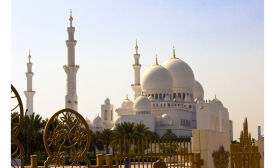china

Headlines explored the effectiveness of global soft power strategies
The election of Donald Trump to the U.S. presidency is continuing to send shockwaves in the corridors of power across East Asia. Yet even before the results of the 2016 US elections became known, the tremors of political change in the region were already evident. Arguably, the U.S. president-elect has only added fuel to the fire of America’s relations with East Asia.
Last week President Xi Jinping received President Ali Bongo Ondimba of Gabon at the Great Hall of the People in Beijing. The meeting, in which the two leaders reaffirmed the importance of bi-lateral cooperation, reflected the profound friendship between China and Africa. [...] China is one of Africa’s main commercial partners.
China is eagerly trying to win hearts and minds in politically and economically crucial states, especially those with abundant natural resources. In foreign policy terms, this is a push for what’s widely known as “soft power” – the ability to win other states over to specific goals without the use of force.It is a major priority for Beijing.
In the future, China, Japan and South Korea should make efforts to improve their relations. First, the three countries should take positive steps to increase regional cooperation and establish mechanisms such as the Free Trade Area and the Regional Comprehensive Economic Partnership. This is beneficial to the future development of the three countries

China is borrowing heavily from U.S.-style diplomacy in the Middle East.
Reflecting the common ideals and pursuit of human societies, it is a positive endeavor to seek new models of international cooperation and will inject positive energy into development. Thus, in line with the purposes and principles of the UN Charter, in the context of current world order, OBOR initiative may also be observed as a great undertaking that may benefit people around the world.







